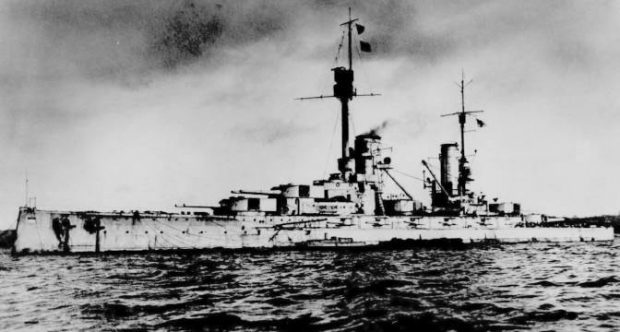An £800,000 marketing ploy to flog four First World War German shipwrecks – on eBay – in the week of centenary commemorations has been condemned as “in bad taste”, “mercenary” and “crass”.
The agent, acting on behalf of 70-year-old Thomas Clark, the owner of three battleships and one cruiser which have been lying on the seabed at Scapa Flow in Orkney for the last 100 years, admitted he was hoping to “make the most of an opportunity” from a memorial event which has a “global attraction”.
However, the move by Mr Clark, an Angus-based diving contractor, to put the historic wrecks on the market at such an emotional time has attracted criticism.
Orkney historian Brian Budge said: “I think this is really in bad taste, given that many Germans lost their lives in the scuttling of the fleet.
“The emphasis during this centenary week should be on them, not the selling of these ships. This just gives me an uneasy feeling.”
One councillor, who did not want to be named, said: “This stinks of being a bit mercenary, even crass.”
A total of 74 vessels from the German High Seas Fleet were interned at Scapa Flow following the end of the Great War in 1918.
Fearing the ships would be seized by Allied forces as the Treaty of Versailles was being finalised, Admiral Ludwig von Reuter ordered the scuttling of the fleet on June 21, 1919 – an act which claimed the lives of 15 Germans.
A number of the vessels were beached, but 52 sank. The majority were salvaged over the following two decades for scrapping.
Mr Clark purchased four of the remaining seven ships for an undisclosed sum 37 years ago with the intention of salvage.
However, as he concentrated on his own commercial diving business, the ships became protected under an act of Parliament.
Andrew Crawford, selling agent for Mr Thomas, said: “If he had been able to recover the scrap metal, it would have been worth close to £8-10m. But that is no longer possible.”
“Mr Thomas has enjoyed having ownership of the vessels, as they are iconic, and diving on them. This could now be a once-in-a-lifetime opportunity for someone to own their own sizeable naval fleet.
“Currently, recreational divers are permitted to access the waterspace around the wrecks, but are not permitted to touch, enter or to go within one metre of the wreck.
“The new owner will be able to dive on them, including touching and entering the wreck, and also to salvage items – subject to gaining the necessary permissions.”
He added that, given how the ships are of historical importance, a national organisation may wish to take on ownership.
On eBay, Mr Thomas is selling three dreadnought battleships – the Kronprinz Wilheim, Konig and Markgraf – with a price of £250,000 per vessel, in addition to the cruiser Karlsruhe, for £60,000.
The other three remaining ships on the seabed at Scapa Flow are owned by Orkney Islands Council.
A spokeswoman said: “Orkney Islands Council purchased the Dresden, Brummer and Koln in 1986 from the Ministry of Defence.
“We note the efforts being made this week to sell the other wrecks, but at this point in time we have no intention of buying them as they are scheduled monuments and as such there is no clear reason for the council to assume ownership of them.
“Our focus this week remains on the programme of events to mark 100 years since the scuttling of the German High Seas fleet in Scapa Flow.”
